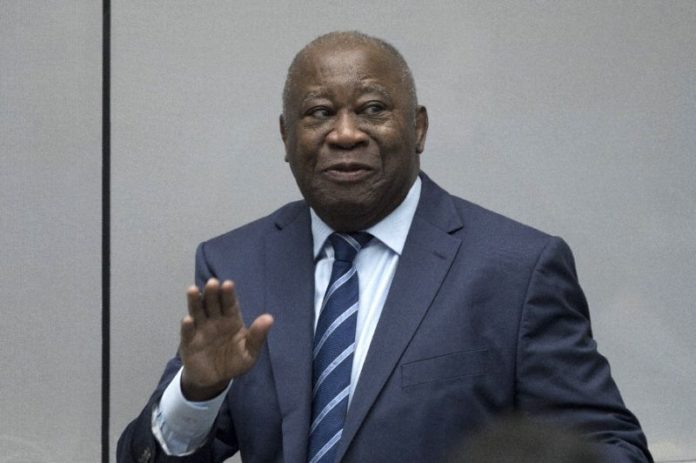THE HAGUE, Jan 16, 2019 (BSS/AFP) – International Criminal Court
prosecutors said Wednesday they would appeal against the shock acquittal of
former Ivory Coast president Laurent Gbagbo and urged judges to bar him from
returning to his homeland.
Judges cleared Gbagbo and his right-hand man Charles Ble Goude on Tuesday
of charges of crimes against humanity over a wave of post-electoral violence
in 2010-11 in which around 3,000 people died.
The Hague-based court also ordered that the two men should be freed, but
postponed this pending a fresh hearing on Wednesday where prosecutors opposed
any unconditional release.
The prosecution filed an “urgent request” saying it “has determined that
it intends to appeal… following the acquittals”.
Prosecutors also said there were “exceptional reasons” to oppose Gbagbo’s
unconditional release, citing a “concrete risk” that he would not come back
if their appeal was successful and the trial was to continue.
But they said they would accept his release “if the flight risk can be
mitigated by imposing a series of conditions, including that they be released
to a State Party… other than Cote d’Ivoire (Ivory Coast)”.
– ‘That changes everything’ –
Defence lawyer Emmanuel Altit however said that Gbagbo should go free
immediately.
“Laurent Gbagbo is no longer presumed innocent, he has been found
innocent. That changes everything,” Altit told the court.
“The prosecutor is incapable of setting out the slightest exceptional
circumstance that would justify keeping an innocent man in prison.”
Judges said they would announce their decision after 1400 GMT on
Wednesday.
It is unclear how soon Gbagbo and Ble Goude would be freed from the ICC’s
detention centre in The Hague if the judges do rule in their favour, although
in previous cases it has taken days to make full arrangements for the release
of acquitted suspects.
– Scenes of joy –
During the trial, which opened in January 2016, prosecutors said Gbagbo
clung to power “by all means” after he was narrowly beaten by his bitter
rival — now president — Alassane Ouattara in elections.
Gbagbo has been in detention since 2011, when he was captured by
Ouattara’s troops, who were being aided by UN and French forces, and sent to
The Hague.
In a majority decision by two judges to one, the ICC said on Tuesday that
prosecutors “failed to satisfy the burden of proof to the requisite
standard”.
The judges said prosecutors had failed to provide evidence of a “common
plan” to keep Gbagbo in power, a policy of attacking civilians, or that
speeches by Gbagbo and Ble Goude incited violence.
Prosecutors called the decision “disappointing and unexpected”.
The decision sparked wild scenes of joy in Ivory Coast and in The Hague.
Supporters danced in the streets and shouted “free, free” in his hometown
of Gagnoa on Tuesday, while Gbagbo’s Ivorian Popular Front party said the
decision would ease reconciliation.
The country faces fresh elections in 2020 to elect a successor to Outtara,
who has said he will not stand for re-election after serving two five-year
terms.
But the case also puts renewed pressure on the ICC after a series of
failures in cases involving former national leaders — most of them in
Africa.
The court was set up in 2002 with the avowed aim of dispensing justice for
the world’s worst crimes.
Last year, former DR Congo warlord and ex-vice president Jean-Pierre Bemba
was acquitted on appeal for crimes allegedly committed by his militia in the
Central African Republic in 2002-03.
Kenyan President Uhuru Kenyatta also saw charges of crimes against
humanity over electoral bloodshed dropped by the ICC prosecutor in 2014.
But analysts said the ICC decision would at least counter one lingering
criticism of the tribunal.
“One positive that the prosecutor may be able to take from this is that it
undermines the notion that the ICC unfairly targets ousted African leaders,”
Mark Kersten of the University of Toronto told AFP.



